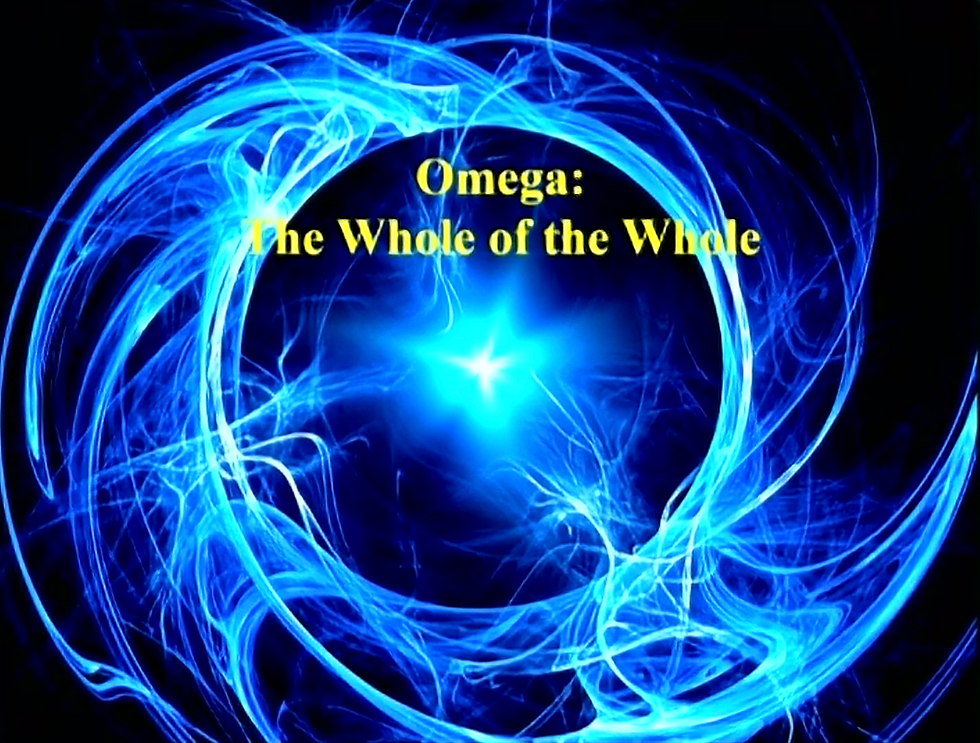An Unfinished God for a Techno-Driven World
- Rick Bonetti
- Dec 5, 2023
- 4 min read
Updated: Dec 10, 2023

This past weekend I was a theology nerd with over 100 people watching online as Ilia Delio, John D. Caputo, Diarmuid O’Murchu, Catherine Keller, Bruce Epperly, Rami Shapiro, Brandon Ambrosino, and Emily DeMoor spoke at the God 2.0: Pantheism and Quantum Reality conference organized by the Center for Christogenesis. It was only two weeks ago that I was dazzled by Ilia Delio and others at the D2 Conference on the Noosphere (the term coined by Teilhard de Chardin 100 years ago referring to and emerging global consciousness.)
I consider the God 2.0 conference a glimpse into a positive future for religion and spirituality, while others might call it "radical theology." Ilia Delio challenged: "What if God is not an unchangeable, all-knowing, all-powerful, Being, as claimed by classical monotheistic religions? "Medieval scholars attributed to God the qualities of immutability, omniscience, and omnipotence, but science tells us that "being" is chaotic, uncertain, unfolding, and entangled!" Sister Delio sees a "Not-Yet-God" (also the title of her 2023 book by that name.) in the process of continually becoming, rather than static.
Her presentation Can God be Upgraded? Lessons from Science about God was about changing assumptions and key concepts - reinterpretation, reevaluation, reconstruction, and redefinition. "The universe is a temporal drama of awakening whose meaning can be revealed only gradually by looking, in a spirit of anticipation and hope, toward the horizon of a cosmic future."
"The nature of the universe is undivided wholeness and religion should be about relational wholeness."
Panelists discussed the urgent need to upgrade theology, particularly in light of quantum physics, cosmology, evolution, and rapid technological advances such as artificial intelligence. We need a new "religion of the earth' to bind us together, to effectively address global, existential threats, and to evolve to higher levels of consciousness and a hopeful future.
As Ilia implores in her 2020 book, "AI shows the critical need to reconstruct religion for a world of evolution and complexity... religion is the linchpin to the future of AI-mediated cosmic intelligent life... an AI world, oriented by new religious sensibilities, can bring about an ecological re-enchantment of the earth."
Jack Caputo spoke about Something Spooky is Going On: Taking a Quantum Approach to God. He took his point of departure from Tillich’s “Two Types of the Philosophy of Religion, and argued that the two types, the cosmological (theist) and ontological (panentheist), also describe the difference between the respective logics of Newtonian and quantum physics. "The world of quantum reality abides by the logic of the ontological, of ground and grounded, not of the cosmological, of cause and effect."
Catherine Keller addressed Earth Matters: Generation, Motivation, Eco-civilization. The old modern materialistic view of the world since Newton is that matter at base inert, lifeless, flat, “stuff.” But Keller argued that matter should "not merely be understood as substance or stuff, but as process, an active process of materialization. This shift in perspective has implications for human's relationship with our ecosystem and all creatures."
Diarmuid O’Murchu spoke on Grounding Evolutionary Consciousness in our Time, stressing the need for humans to reconnect with nature and how creativity in evolution has made humans exceptional. He said "Ever since the visionary work of Teilhard de Chardin, evolution has become an ever more central feature of our understanding of life at every level. In our time Sr. Ilia Delio has brought that awareness to a new level of coherence and conviction. How to ground that vision still remains a formidable challenge, particularly for the emerging spirituality of the 21st century."
Bruce Epperly presented The God, Theology, and Spirituality of Tradition and Tomorrow: 2.0 and Beyond saying that “Pierre Teilhard de Chardin challenges us to seek the God of Tomorrow. A prolific author, Epp[erly is slowly entering retirement after "a career of over four decades of creative synthesis of academic theology and pastoral ministry."
Rabbi Rami Shapiro, himself a panentheist, expounded that "God is Everything" as he explored the I AM/Ehyeh that is Everything/YHVH revealed in Exodus 3:14-15.
Brandon Ambrosino offered a theopoetic exploration of the process of God becoming: Gods who Rise, Fall, and Become: Psalm 82 and Entangled Love. God’s character is not the result of being; God is only because of the process of loving. In the order of being, compassion is primary.
All this was very heady, abstract, and complex - unfortunately, not something that is easily communicated. In some respects, the conversation is familiar, as I had read books by Caputo, Keller, O'Murchu, and Epperly a decade ago. The writings of Ilia Delio are newer to me as are those of Teilhard de Chardin and modern scientists who acknowledge a global movement toward realizing this new Omega. I believe the Noosphere is both real and very important.
Emily DeMoor brought the conference to a close with a 35-minute liturgical grounding experience of devotion to the Divine within - not a supernatural, interventionist God, but a relational whole without a center and with no circumference.
I don't expect that congregations (churches, temples, and mosques), their leaders, and their institutional organizations will be quick to give up the "guy in the sky" and embrace this new understanding of God. However, I am still "hoping against hope!"
"The true function of religion is 'to sustain and spur on the progress of life - to nurture the 'human zest for life.' Religion is another name for the energy of cosmic personalization and unification."



留言